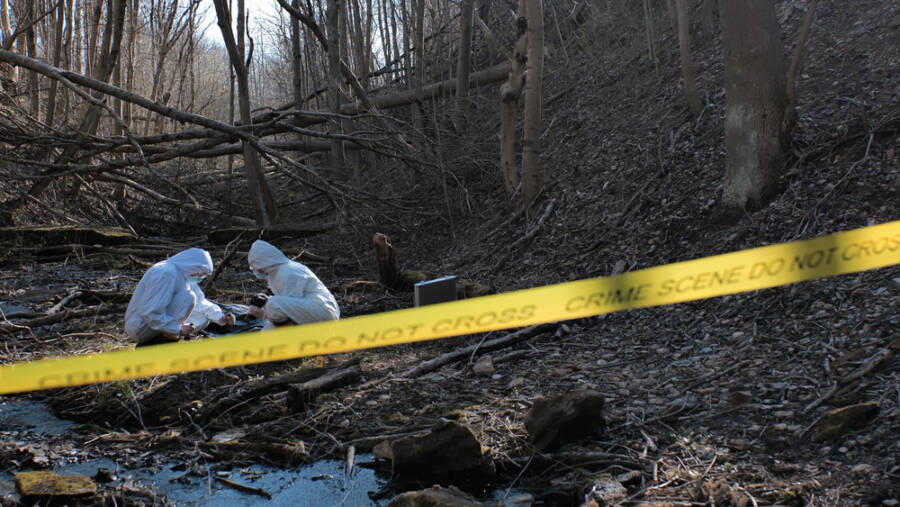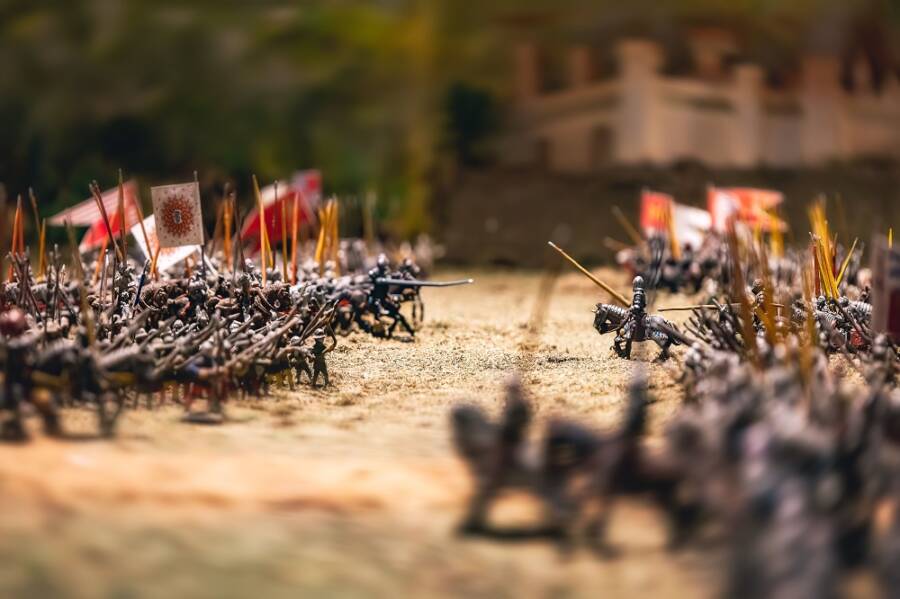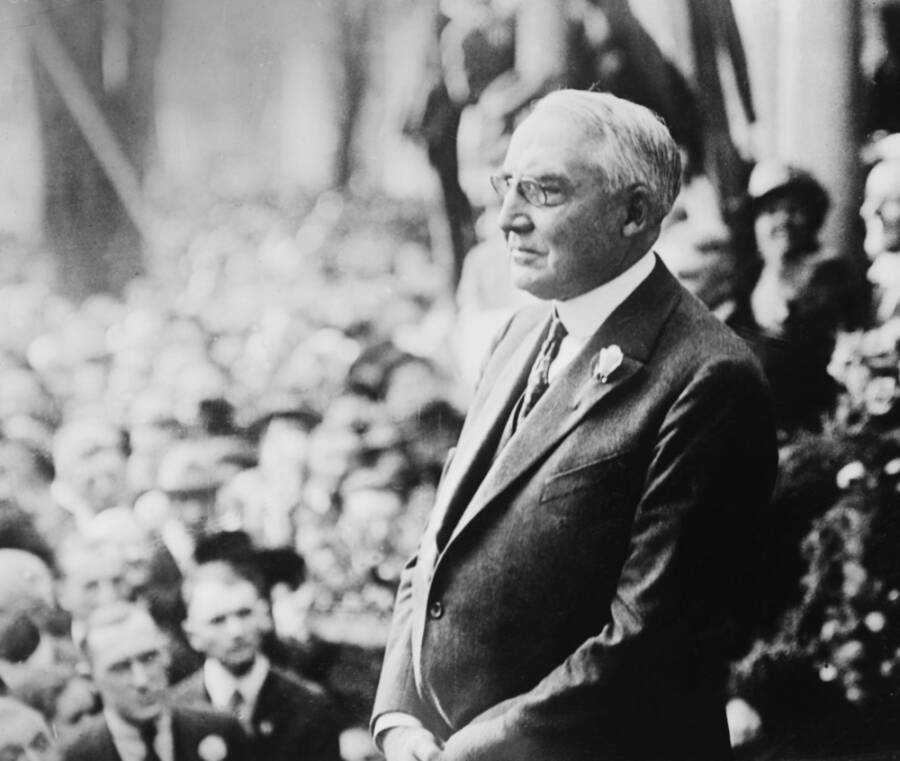Do you remember all these World War II facts from history lessons?
While World War II has been one of the most covered and spoken about world events, there are a lot of facts that people either forget or are no longer privy to! This has led to a lot of confusion, or some individuals using the wrong facts in order to skew the facts of the matter. Sure, we are aware that there is so much complexity about the event that it is easy to get some things confused or to not remember all of the facts. Yet, this is no excuse to get even the most basic details confused.
After all, not all things are black and white, good versus evil (or, in our case, the Allies versus the Axis). There is always room for some gray area, and that is where a lot of the facts get muddy, forgotten, and even cast aside because they get too complicated. To get rid of this stereotype and narrative, we turn our attention toward some of the most inconvenient and largely misconstrued facts about World War II that every American should know! Warning: some of them may be uncomfortable to read!
Let us know if you have any other lesser-known facts about World War II that you would like to see added to our list!
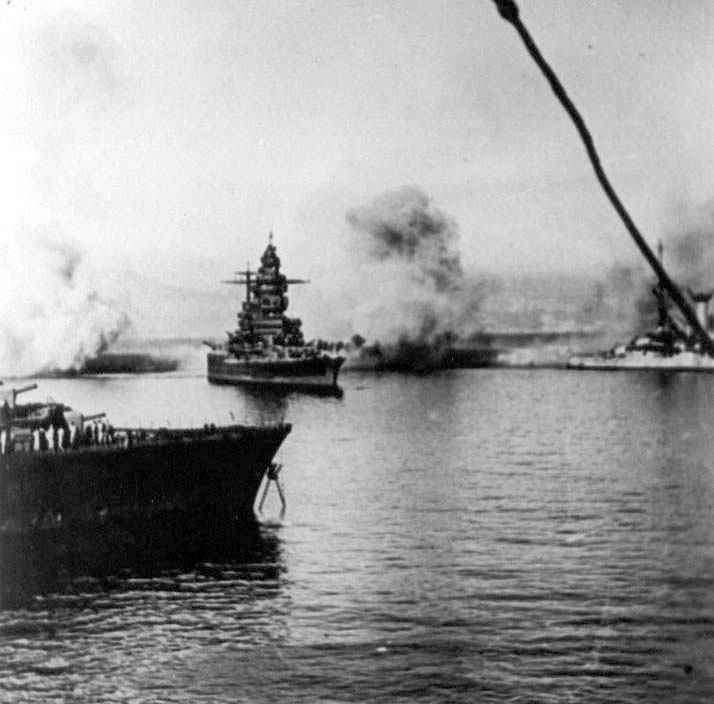
#1 The Brits turned against the French… Sort of
After the French army fell, the British rulers were worried that their navy would fall into German hands and thus aid them in the war. However, try as they might, they couldn’t convince the French Navy to join the British Royal Navy and their cause. While some eventually joined because of a scarcity of supplies, Churchill and the British War Cabinet were not entirely patient with the matter and thought that the best course of action would be a display of force.
This is how Operation Catapult started in July 1940. After seizing French ships in British ports, they demanded their surrender, and when they refused, the British would open fire against them. This only led to aimless loss of life, as 1,300 French sailors died, but their fleet did not sink. The worst part of this failed plan was that many ships escaped back to France.
Shortly after this incident, the Vichy government rose to power in France, becoming hostile toward the UK, which spurred unrest in the already fed up British colonies and caused a lot of problems for the British Empire later on in the war.
#2 The Italians lost to the Greeks… and several others
The Italian army had nothing to be proud of when they started the invasion of Greece. It is a fact that the Greek army back then was way smaller, less experienced in fighting, and definitely less modern than the Italian one. This meant that many people expected them to easily defeat the Greeks when they faced them in 1940. However, 20 days after their invasion started, the Italians were not only unsuccessful, but it also forced them back into Albania, which was already occupied, continuing the stalemate.
They finally got out of the stalemate several months later when Germany came to their aid. It was an embarrassing defeat for the Italians, and it brought about the rumor about their incompetence. They only proved it later, when they were losing battles in North Africa against the French and against British-occupied Egypt. The only ways in which the Italian army won were because the German army joined them or because the opponent surrendered because of other circumstances.
This is definitely a very embarrassing fact for the Italians.
#3 The British were horrible to India for no reason
The British Empire did a lot of questionable things during its total involvement in the war. Besides the fact that we have already mentioned it, this is not the last time we will hear about them and what else they have done to innocent people. To be honest, the British started the war against the Japanese badly, and they suffered a huge defeat that resulted in the loss of part of the Indian territory under their control to Japan, which is still known as one of their biggest and most shameful surrenders!
When they lost Burma (which is now known as Myanmar) to Japan, they also lost 15% of their rice supply. This ended up being an enormous blow because, combined with the transportation problems caused by the ongoing war and the very poor government policies, losing Burma to the Japanese caused the people in Bengal to enter a harsh period of famine.
Rural Bengal areas were already struggling with the British war policies, so the lack of food just exacerbated the problem. The London government refused the region any food imports that could have helped with the famine, leading to sky-high rice prices and the overproduction of the grain for export rather than internal usage.
Alongside the racist attitudes and policies that Winston Churchill had, which blamed the Indians for the famine, it took the British rule way too long to realize what was happening to the poor civilians in these regions. As a result, despite eventually starting some measures to help, 3 million people have already died because of their poor government.
#4 Speaking of India, part of the country fought for Hitler
Since we were already talking about India, we probably do not have to mention that anti-British sentiment in the country skyrocketed during these trying times. As a result, in 1941, the leader of the Indian liberation movement went to Germany to seek support for their cause against the British Empire. This led to the creation of a special legion in the German army called the Indian Legion, made up of about 2,000 captured Indian soldiers who used to fight on the British side.
Together with other volunteer soldiers, the Legion amassed about 4,500 people, united for their cause of liberating India. For the majority of the war, they saw no combat, and they worked as “propaganda machines.” In 1944, they ended up being transferred to the militarized wing of the Nazi party, and it sent them out for limited combat, yet it was nothing too substantial.
Although the Indian nationalists were looking towards Hitler and the Nazi Party for help towards their cause, they did not agree with fascism, and neither did their helper truly believe in their cause. They purely made this alliance based on convenience rather than shared values; the Indians were against what Hitler was actually doing, and the ruler of the Third Reich thought that the British rule was justified in India (based on inaccurate racial grounds).
However, this didn’t stop the Indian Legion from fighting alongside Nazi Germany.
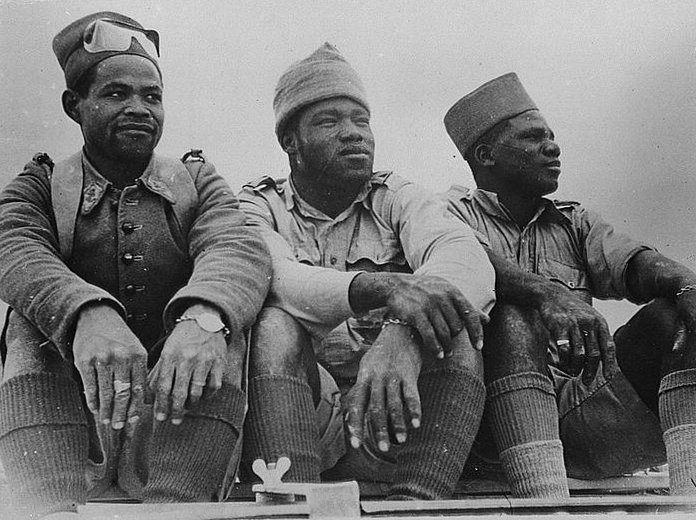
#5 The fights in Madagascar
Madagascar rallied behind the Vichy government back in 1940, making the Allies worry about the possibility that the Japanese may end up forming a base on their land and thus have a strategic place in the Indian Ocean. In order to stop this from happening, the British organized a blockade and then followed up with the May 1942 invasion of Madagascar. This caused a clash between the UK forces and the Vichy defendants in the area, who held the British military forces at bay for about half a year before they eventually surrendered.
This was not the end of the Madagascar fight, and many people seem to think that it is not a fact that there were multiple battlegrounds around the world. Towards the end of 1942, the United States sent troops to aid the UK forces in the French-ruled part of North Africa. That was when they had to fight against a bigger force than they had expected.
About 100,000 Vichy French troops were stationed in Madagascar, and their previous defeat at the hands of the British motivated them and made them want to prove their worth as soldiers. This started a string of fights and resistance against the Allies that were unexpectedly stiff before the US and UK troops finally bested them.
#6 The British also had something against Iceland
The British Empire had a tremendous problem leaving old habits behind, especially since they also proved it with the famed animosity between them and the French, too. What they could not leave behind (as we saw, it happened more than once during the war) was invading territories that were neutral and entire countries! This is exactly what happened with Iceland, and they couldn’t leave them alone.
Back in 1940, Denmark fell into the hands of the Germans, and since Iceland was still a Danish state at the time (as it had been since 1918), they took the opportunity and declared independence, along with a neutral stance regarding the ongoing war. Even so, Iceland held a very strategic position for the ongoing battle in the Atlantic Ocean, so the British couldn’t leave them despite their neutral position.
They offered “protection” to Iceland, which was politely refused, so the British did what they knew best, which was to invade the country and seize the most important locations, even arresting local Germans. Iceland started several formal protests but did not attack back, choosing to remain in the hands of the Allied forces until the war ended.
This proved a good move since the Allied forces won, but we cannot help but wonder what would have happened if they didn’t…
#7 Part of the Axis: Bulgaria, Hungary, and Romania
If we asked you to name the Axis powers, most people would answer with countries like Germany, Italy, or Japan, but since it was World War II, there were actually way more nations involved than many like to name. Small independent nations from Europe, like Hungary, Bulgaria, and Romania, were also playing an active part in the war, and they joined forces with Germany.
It is a fact that Romania made a deal with Nazi Germany in 1940, supplying them with troops and raw materials, while Hungary sent over 200,000 troops to aid the fight against the Soviet Union. The High Commander of the Nazi Party sacrificed a lot of these troops so that Germany could retreat in 1943.
Bulgaria joined the war in 1941 to assist the Germans on the Yugoslav front, hoping to gain a portion of Yugoslav territory if they won. Despite these countries joining, they were thought of as a hindrance to the German army.
In 1944, Romania switched sides and joined the Allied forces, but this is a lesser-known fact that people rarely remember. As a result, despite hoping to regain all their lost territory at the end of the war, they only got back parts of it.
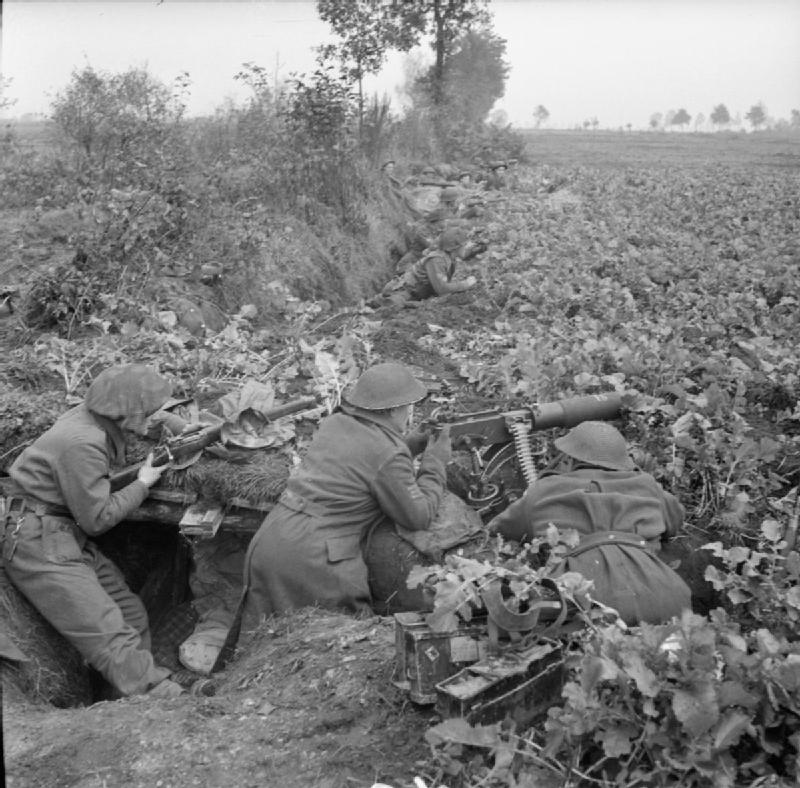
#8 Russia invaded part of China, but they actually got rid of the Japanese oppressors
While it is a fact that the atomic bomb was one of the decisive facts that brought about Japan’s surrender and the end of World War II, there are other factors that contributed to this decision that people often forget to mention. Before the atomic bomb attack, the Soviet Union invaded the Japanese-occupied part of China, in August 1945. Eight years prior to this invasion, Japan occupied that part of China, establishing an oppressive and massive military force of about 800,000 people there.
The Soviets came prepared to fight the high numbers of people with their own massive army of 1.5 million people, overwhelming the Japanese military and causing them to surrender. The invasion led by the Soviets ended up the 8-year war in the region and the brutal occupation by the Chinese.
However, this didn’t come without a heavy price; about 1.7 million Japanese people who were settled in the region faced the brutality of the Soviet troops, alongside disease, starvation, cold and Chinese reprisals for what they have endured in the years before.
Seemingly following the saying “an eye for an eye”, there were as many as 2,500 Japanese civilian deaths a day on some of the worst days.
#9 Iraq and Syria were part of the war
The fact that anti-British sentiment was always present in Iraq is nothing new. Even before the combat in Madagascar and the French-controlled part of North America, there were people who were considering riling up against British rule. The two combats only lead to the 1941 organized coup d’état against the government, which was pro-British, and they had to fight against the British military, which was sent there to intervene.
The rebels who were in charge of the attack asked the Axis forces for aid, but since Germany was preparing their invasion into Russia and had long-standing battles in Greece, they could only send help as equipment and military weapons. A lesser-known fact is that Syria, which was ruled by Vichy, allowed this help to pass through their country via their railroads. The Vichy government was definitely in agreement with the anti-British sentiment of the rebels and did its part in order to help them.
The coup ended up being defeated, but the actions of the Vichy regime just put them on the map as part of the war, leading the British to launch their full invasion into Syria shortly after! The instincts of an Empire used to conquer other countries die hard, especially when they felt like they had something to prove.
#10 China has been the second country when it comes to loss of life!
This is one fact that always ends up being not taken into consideration and forgotten, but the fact of the matter is that China has been the second country involved in World War II, with the highest loss of life, which is actually extremely important. Back in 1937, China was the first country that had to directly face an Axis power, and it brought about a lot of casualties and atrocities committed by the Japanese army. There are a lot of events such as the massacre of Nanking (and it wasn’t the only loss of life they dealt with then) that are still vivid in the mind of Chinese people.
Overall, China faced a loss of 15 million people during the entire course of the war, second to the Soviet Union, which lost around 25 million. By comparison, Germany lost only 8 million people! Out of those 15 million, 10 million were civilians that lost their lives. It is one of the saddest facts about the war, that innocent people get caught up in the fire and end up losing their life, or being abused during the war.
Before the events of Pearl Harbour, China was one country that fought alone. Four years after, they would be one of the most important pieces of the Allied strategy in beating the Japanese forces!
To get more of your daily dose of historical facts, read even more about the World War II facts you should definitely keep in mind!


